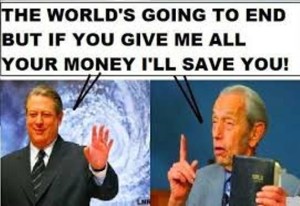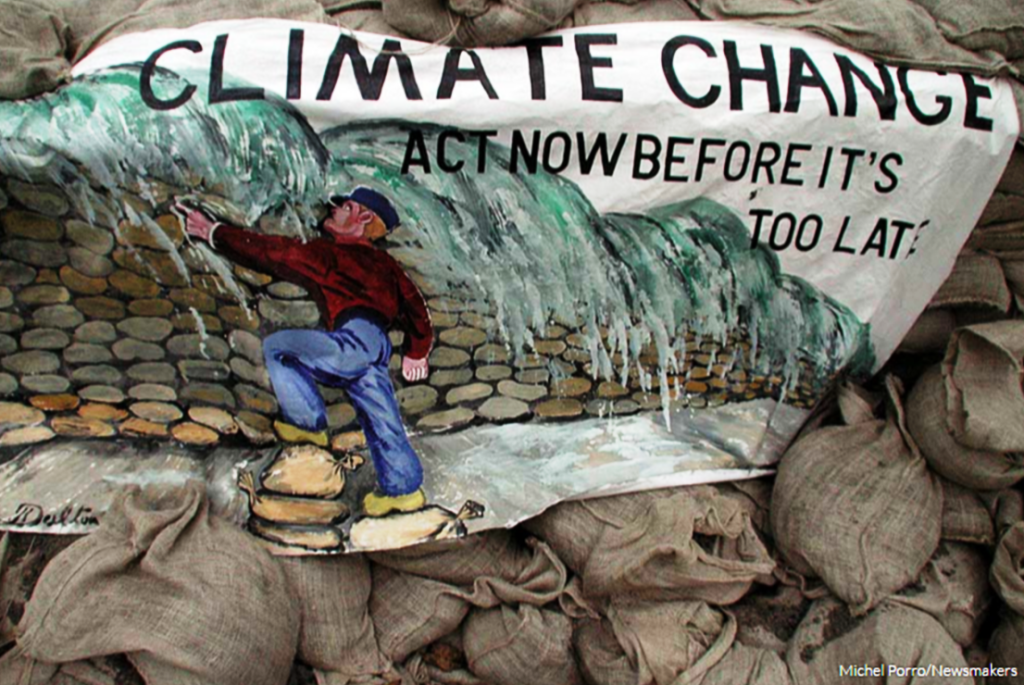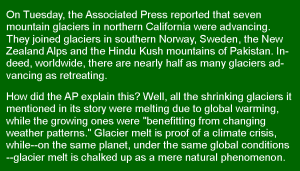“Predicting disaster can be a profitable business and a path to speech-making celebrity.”
Despite getting off to a great start this winter, we’ve experienced two consecutive ski seasons where the snow has not been “what we could expect” based on the averages of the past 18 years. I use 18 years because that’s how long I have been skiing and observing the snow conditions.
 Recency is a term I like to use when talking about climate change. I first started using it while in the real estate business. It’s a phenomenon which refers to our propensity to look at recent events and give them more credence than events that happened before recent times.
Recency is a term I like to use when talking about climate change. I first started using it while in the real estate business. It’s a phenomenon which refers to our propensity to look at recent events and give them more credence than events that happened before recent times.
I believe the climate is changing.
I also believe it has been changing since the beginning of time, and will continue to change regardless of any actions by humans. It cools off and warms up based on phenomena which we know very little about. If we could come back in a thousand years, we’d be amused at the politicians and pundits predicting armageddon over the imminent ice age and the “forty years of darkness” which can only be prevented by citizens coughing up more tax.
 My words on the internet will remain forever, so I hope someone will find this in a google search and prove me right in the year 3016. Better yet, I hope this prediction comes true in four years where…
My words on the internet will remain forever, so I hope someone will find this in a google search and prove me right in the year 3016. Better yet, I hope this prediction comes true in four years where…
“Four solar cycles are coming to an end between now and 2020. It’s gonna get colder, folks. A lot colder.” Cooling Down
Getting back to recency, Yale economist William Nordhaus notes that…
“the era of human expansion has coincided with a 12,000-year period of uncharacteristically stable climate. He surmises that human civilization may be unusually dependent on this stability.”
When you consider 12,000 years compared to 4.5 billion years, it could certainly be considered recency.
Nordhaus’ statement is contained in a lengthy but thought-provoking article. Lengthy, but I couldn’t stop reading, finding it immensely compelling Twilight of the Climate Change Movement. If you have an interest in this subject, and if your knowledge of climate change has been restricted to sound bites from the mainstream media, you owe it to yourself to read the article.
Here are a few excerpts (which I hope will encourage you to read the entire article)..
“The evidence is overwhelming that the planet has been warming off and on for several centuries.”
“the alarmists’ call for worldwide economic controls, including caps on fossil fuels, are largely recycled from previous scientific doomsday fads, such as the oil scarcity scare of the late 1970s. Despite the enormous costs these policies would impose, especially on poor countries, they would do virtually nothing to stop anthropogenic climate change, let alone protect anyone from relentless natural climate change that is one of our planet’s most prominent and inescapable features.”
“This repeating cycle of 100,000-year glaciations and 10,000 to 20,000 year interglacials has been fairly consistent over the past 2.6 million years. The planet has trundled through the entire cycle dozens of times. If the pattern holds, we are due for another major glaciation sometime in the next several thousand years: The northern hemisphere will again become substantially covered in glaciers, ocean levels will fall hundreds of feet, and the earth’s overall production of plant biomass will fall substantially below what the current human population needs to feed itself.”
The fact is we just don’t know, but there’s money to be made by special interest groups, politicians who need followers, and the media which needs sensational news to get higher ratings.
Anyone remember Y2K? Peak oil?
“I’m an old man. I’ve known about many troubles…most of which never happened.” –Mark Twain



Interesting article: http://edmontonjournal.com/news/national/david-staples-what-created-the-beast-of-fort-mcmurray-el-nino
Hi Bob,
My family and I have hugely appreciated your wonderful blog on trail conditions and have enjoyed meeting you on the trail once in a while. Thanks so much!
However, I was disappointed to see you using this forum to deny climate change essentially arguing ‘special interest groups out to make money’ is at the heart of this ‘non-issue’. For Earth day, I thought I would include a link to highlight one of those ‘special interest groups’ – scientists – and their consensus that human activity is driving this rapid climate change resulting in a host of hugely concerning consequences for society and the planet: http://climate.nasa.gove/scientific-consensus
I’m thankful that that more and more political and industry leaders are no longer responding with either denial (like this post), or ignoring – and actually responding to the problem.
Finally, here is a beautiful video short celebrating our little blue planet as viewed from space: https://vimeo.com/55073825
Happy Earth Day!
“I was disappointed to see you using this forum to deny climate change”
You should read my entire article. I state plainly and in bold type that I believe in climate change. The jury is out, however, on whether it is man-made or a normal occurrence. There is credible science to prove that it’s not man-made. Nobody really knows. I’m skeptical of the scientists who cheat National Snow and Ice Data Centre caught cheating – Yet Again.
No one can agree on the data let alone the conclusion the data supports. I can conclude that the people fudging figures cannot be trusted as authorities on scientific facts.
Grace’s comment below explains where we need to concentrate our resources: Mitigating the effects of climate change, rather than spending trillions on studies and ineffective solutions. This article expounds further on that topic Climate change won’t kill you – having no electrical power will
Climate alarmists depend on people understanding little about science or history. In honour of Earth day today, here’s a quote: “Civilization will end within 15 or 30 years unless immediate action is taken” • George Wald, Harvard Biologist, Earth Day 1970
What is wrong with me using this forum to address an issue which is of concern to cross-country skiers, and will have a significant impact on us?
David, you might note that “scientists” are not a coherent group and are not all on the global warming bandwagon. Some people who may be qualified as scientists are certainly doing it, but I don’t think it can be said that all scientists are at a “consensus.” Not like a consensus really matters anyway. Once, the consensus of scientists was that the Sun revolves around Earth…
I think we may be ‘arguing’ about the wrong issue. Most of us agree the climate is changing. Maybe it doesn’t matter so much why it is changing. The question is, how are we going to adapt to the impacts? This blog is focused on winter in the Rockies where snow and ice accumulate in the cold seasons and are gradually released during the warm season, providing water for drinking and other daily personal needs, agriculture, industry, world-class fishing in the Bow River, etc. Fish are known to be highly sensitive to temperature changes. If the prairies get drier as expected, farmers will want to withdraw more water from a dwindling supply. These are just a couple of examples of how climate change is expected to impact those of us in southern Alberta.
The impacts globally are much more severe. Wholesale flooding of low-lying, heavily populated nations such as Bangladesh, extreme weather events that destroy homes, infrastructure and natural environments, warming sea temperatures that change not only sealife patterns but global weather.
The question is not WHY the climate is changing, but how we as a human race are going to adjust to the changes. For some of us, the biggest impact we might notice is having to drive to Lake Louise for reliable snow and never skiing at West Bragg Creek again, but we need to expand our thoughts outside of our own little comfortable world. Many of the hardest hit people will be those least able to deal with the impacts.
I keep going back to that cartoon I’m sure everyone has seen a hundred times before http://greenmonk.net/2010/01/07/what-if-we-create-a-better-world-for-nothing/. Why wouldn’t we want to create a better world?
When I contemplated this issue and how it seems to unequivocally polarize opinion, the thought occurred to me that perhaps both camps are on track. Or at least, it’s evident that both camps have many solid arguments and examples that are worthy of serious consideration. An illustration of that hypothesis could be the thoughtful comments that appear here withal.
Good discussion. Thanks bob for taking the leap. I’m not sure why we bother with the debate of whether climate changes are human Induced or not, or to what degree. Conspiracy theorists would say it’s purposeful, keep us busy arguing about the causes and not taking action. I wish we could reframe the whole thing to “pollute less becuase its bad for our health”. Sounds like a better argument to me. In the mean time I’m going to put tape over the TDI insignia on my vw “clean diesel”.
VW’s emissions cheating is disappointing, to say the least. There’s no doubt nitrogen oxide is nasty. However, what gets overlooked in this issue is the fact that diesels emit 25-35% less carbon dioxide than a comparable gasoline engine. So I’ll continue to drive my old (1993) diesel knowing that it is contributing significantly less to the greenhouse effect that most other cars.
The snow this year has been interesting. There has been a pretty good snow fall around the Divide but for some reason it did not make its way to the Front Ranges or foothills. (If the links below work) you can see that there was a very good snowfall at 3 Isle Lake but poor accumulation at Little Elbow just to the east. Similar good snow fall is seen at Skoki–>Lake Louise area good snow. Conclusion: The snow was great in some areas and poor in others.
Three Isle Lake near the Divide in Kananaskis http://environment.alberta.ca/apps/basins/DisplayData.aspx?Type=Figure&BasinID=14&DataType=4&StationID=TISL
Little Elbow Summit in Kananaskis http://environment.alberta.ca/apps/basins/DisplayData.aspx?Type=Figure&BasinID=14&DataType=4&StationID=LELB
This pattern with plenty of snow above 1800m/ near the continental divide and little or no snow below 1800m/ east of the divide is to be expected whenever temperatures are above average for much of the winter. This has happened before and it will happen again. If the human-caused climate change projections are correct, then we’ll be seeing more winters like this.
In the long term, it makes sense to select ski trail locations that are above 1800m elevation and near the continental divide. That means more trails at Lake Louise, South Peter Lougheed Park, Mt. Shark and revive the Chester-Sawmill trails in the Smith-Dorrien Valley.
In the short term, I’m hoping the El Nino cycle has come to an end and we’ll see a cooler, snowier winter again next year.
“People don’t do what they believe in. They just do what’s most convenient and then they repent.” – Bob Dylan, Brownsville Girl
To me, this is the essence of the climate change issue. Humans want to keep doing what’s most convenient, materially. “We” are the only things we believe in. I would be gobsmacked to see us acknowledge – and sacrifice for – a “higher purpose.” We’ve never done it, to my knowledge. Some parents sacrifice for their kids. Some nations sacrifice to win wars. But humanity has yet to collectively sacrifice to help something (the planet) that is much more important than we are. For me, now is the time, climate is the issue, and the planet is the higher purpose. There’s no down side to us stopping climate change (the economic sacrifice would be a pittance, in the arc of human history), only immense satisfaction, personal growth on a species-wide scale, and the knowledge that we did the right thing for the right reasons.
I’m not taking any chances on whether the decrease in recent solar cycle amplitude will equal out the effects of increased methane release from melting arctic tundra.
I’ll mix Swix Green glider with Swix Aqua Klister, and will ski with my life jacket snuggly fitted over my avalanche transceiver!
Bob, thanks for your ski reports, they’re so useful and i really enjoy reading them.
I have to say i was a bit disapointed by that last post but, as Manfred mentioned, i don’t think anything can change your opinion.
However, as you like researching, i cannot help but wanting to share with you this interesting article that answers some of the common preconceptions about climate change:
http://www.theguardian.com/environment/climate-consensus-97-per-cent/2014/may/06/top-ten-global-warming-skeptic-arguments-debunked
Keep up the snow reports!
Charles, my opinion has already changed. I started out, like many people, believing people like Al Gore and David Suzuki. I even went to Al Gore’s infamous “An Inconvenient Truth” movie, and I was a believer, until I started to look at all the evidence.
I am simply trying to educate myself about climate change and want to make an informed opinion, so thank you for your input. I also think you misunderstood Manfred’s point. If anything, he was reinforcing my opinion that we really don’t know much about climate change.
Climate change is a relevant issue for skiers.
Here’s another Mark Twain quote: “It’s easier to fool people, than to convince them that they have been fooled.”
Back in 2005, I worked for British Standards. Because of my residency in Calgary, I was assigned to be BSI’s “Green House Gas Emissions Verification (GHGV) Expert”, owing to the fact that Calgary is Canada’s energy capital. I received training from Environment Canada to quantify GHGVs, attended numerous climate change mitigation workshops, carbon credit symposiums, hobnobbed with policy makers, green tech startups, NGO’s and the odd earth scientist. My job was to sell BSI’s expertise in this field. I was truly a man on a mission, as I firmly believed that anthropogenic global warming was causing our collective doom. I mean, every serious scientist was in agreement on the issue right? The mainstream media (where I worked for 15 years previously) was constantly churning out scary scenarios (and still are), and the “best and brightest” of us warned that if we didn’t do something immediately, there would be no safe future for our children. At the time, my livelihood and earning capacity was directly dependant upon my ability to demonstrate why large emitters required my service. So, when challenged by a prospect to prove why his company needed GHGV, I arrogantly determined to ram as much hard science down his throat until he saw the light. I went away and started what I thought would be a simple weekend researching the subject, planning to meet again with this daft fellow the following week armed with a plethora of indisputable fact and data. I resigned a few months later from BSI. Every day since I began that journey, I still look for indisputable fact and data to support not only the claims I made in 2005, but all of the resulting claims over the past 11 years that you and I are bombarded with on an almost daily basis. Obviously, I haven’t found it yet. What I have found however is a polarization of popular opinion that frames those who still believe in the scientific method as “deniers”. And I have begrudgingly accepted that no amount of observed data (that’s right, observed. NOT models), facts, statistics, or reason will enlighten those with deeply embedded political biases. Science requires objectivity.
Great post, Manfred.
Thank you (from B.Sc. in Geology and geochemistry of ore deposits, who also worked with various media. And who does believe in science methods and raw data, not sensations and partial analysis.)
Sorry Bob but I think you’re in denial on this one. When such a large consensus of scientists who study this field agree that human actions are linked to the acceleration in climate change, we’re fooling ourselves to think otherwise. Yes the climate changes without human intervention, but we certainly have a significant impact. There will be ups and downs in the temperature from year to year (and I’m sure we’ll have some good skiing years to come) but the overall trend is towards a warmer world. The less carbon and other greenhouse gases we produce, the less this trend will accelerate.
AMEN Bob!
The root problem is the lack of geoscience knowledge within the general population as to how the Earth operates and has operated over the past 3+ billion years.
I completely agree with you, Bob.
Vast majority of all these dooms day stories, including anthropogenic climate change, are created to make profit.
That doesn’t mean though, that humans should not be careful about exploitation of natural resources, including fossil fuels and forests.
I’d think deforestation is the bigger problem than mining.
Y2K never happened because people heeded the warnings and fixed the problem.
Peak oil has been delayed by increased fracking.
And yes, since you asked, I do believe in climate change.
Y2K was never a problem of any significance and “peak oil” has been proven time and again to be a fallacy. Climate is always changing-it’s called weather.
I’ve heard one Volcano spew of CO2 nulls out pretty much all the recycling efforts we’ve made all year (or was it years) by everyone who recycles.